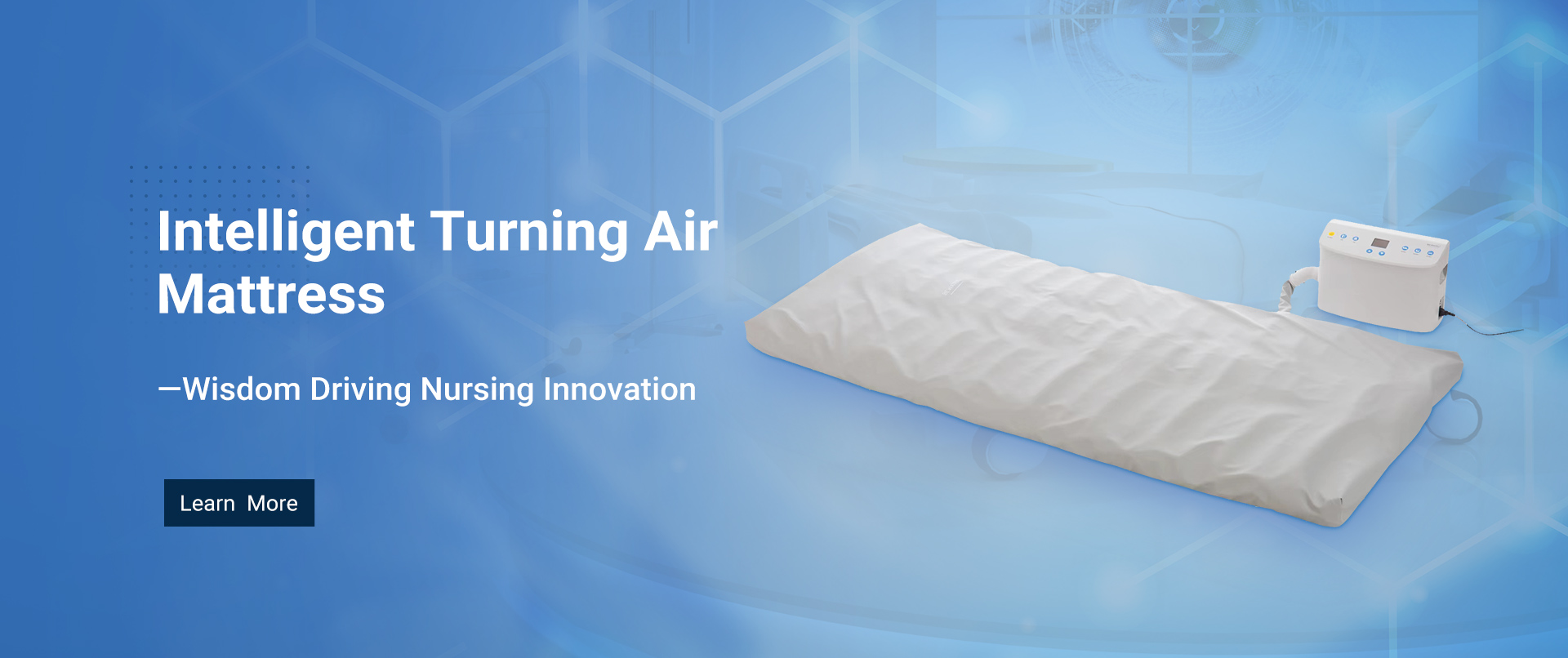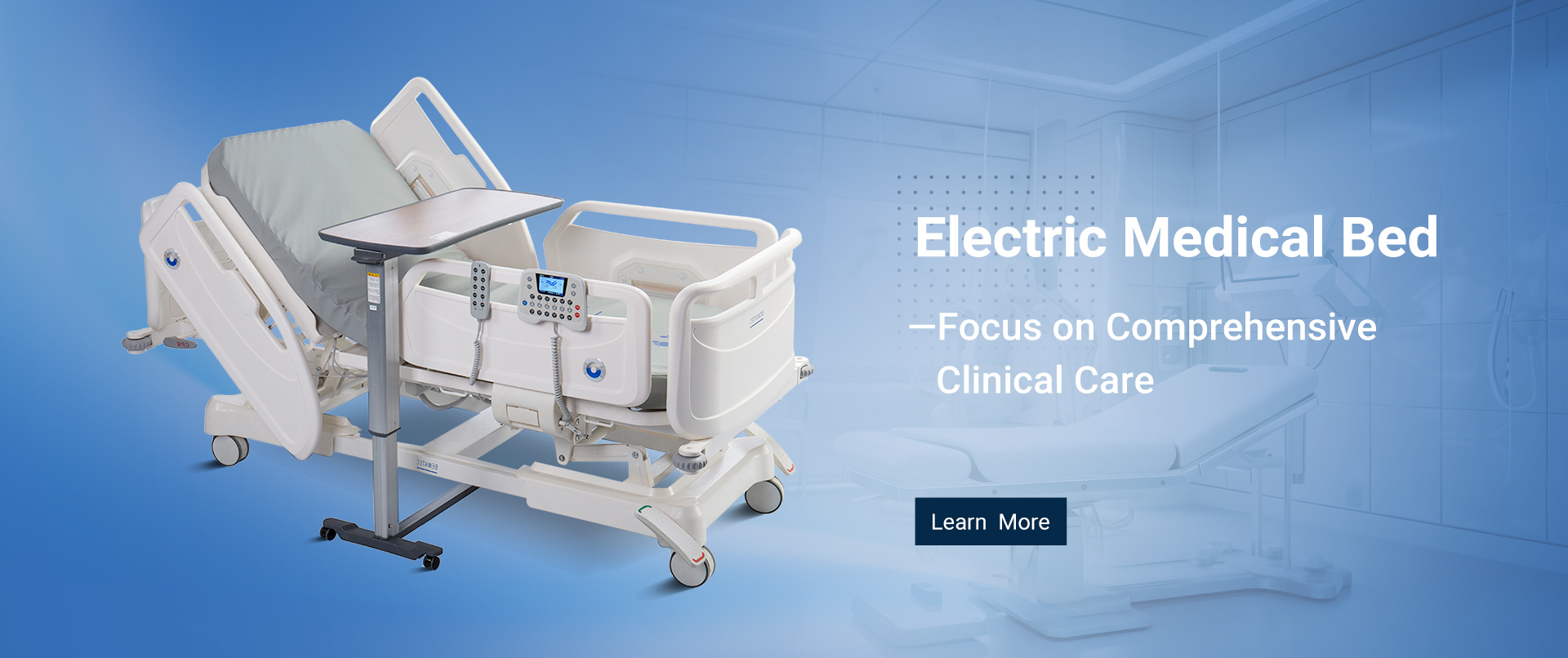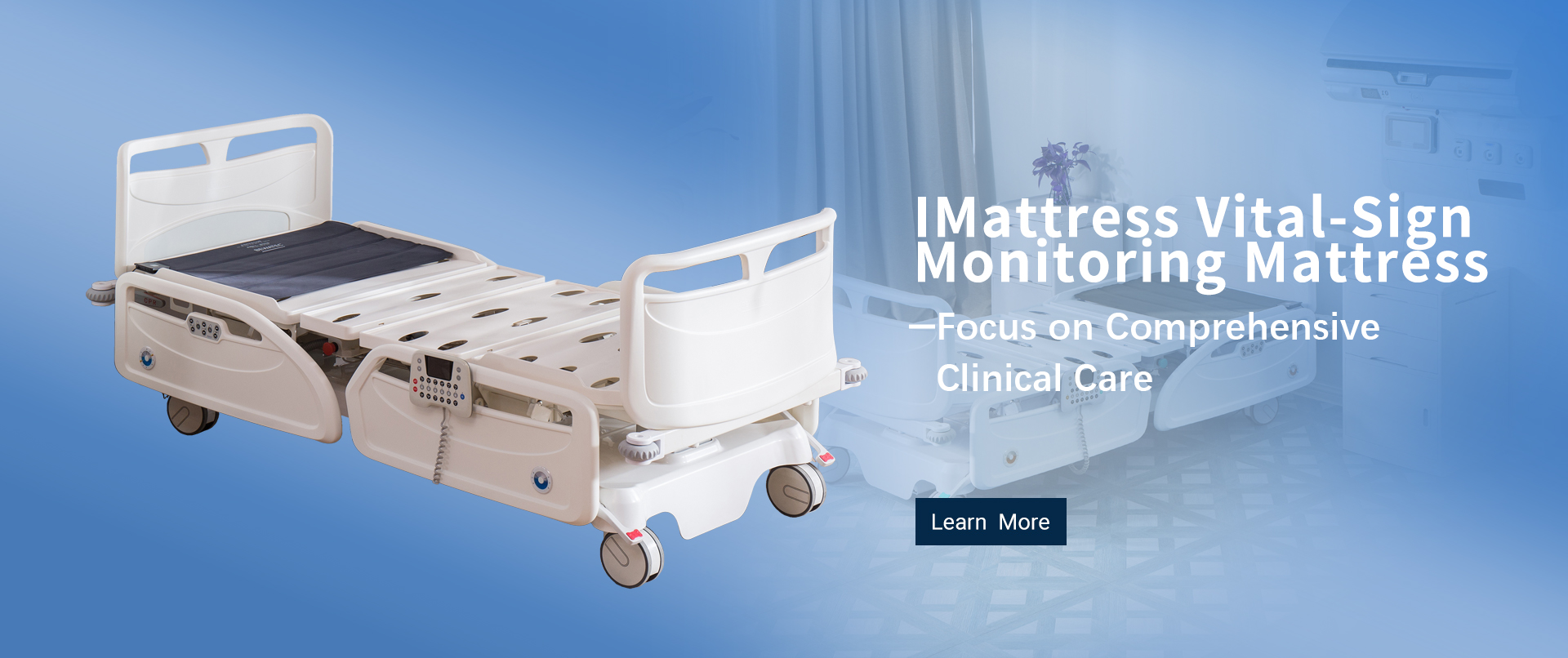
Revolutionizing Patient Care: The Impact of Smart Hospital Beds on Recovery Times and Comfort
Table of Contents
- The Evolution of Hospital Beds: From Traditional to Smart Solutions
- Enhancing Patient Comfort: The Role of Advanced Mattress Technologies
- Data-Driven Care: How Smart Beds Monitor Patient Health in Real Time
- Reducing Recovery Times: Evidence of Efficiency Gains with Smart Bed Systems
- Integrating Smart Hospital Beds into the Larger Healthcare Ecosystem
- Patient-Centric Innovations: The Future of Bedside Technology in Hospitals
- FAQS
- Conclusion
- Related Posts
You know, in today’s fast-changing healthcare world, tech is really shaking up how we care for patients—especially with cool stuff like smart hospital beds. These aren’t just about making patients more comfortable; they’re actually helping folks recover faster, which makes a huge difference in overall health outcomes. Bewatec (Zhejiang) Medical Device Co., Ltd. has been leading the charge in this space, really pushing forward with smart healthcare and digital changes across the globe. They’re all about giving patients personalized, safe, and comfy digital care experiences. Honestly, Bewatec is really carving out a name for itself as a major player worldwide in smart medical solutions. The thing is, smart hospital beds are more than just gadgets—they’re a glimpse into the future of patient care, where tech and compassion come together to make the recovery process smoother and more caring for every individual.

The Evolution of Hospital Beds: From Traditional to Smart Solutions
The way hospital beds have evolved is pretty impressive. I mean, we've gone from the plain old, basic models to these really cool smart beds that actually boost patient care. You know, traditional beds mainly did the job of just providing a place to lie down and maybe a little comfort, but they weren’t really great at helping doctors track what's going on or adjusting to what the patient needs in the moment. They were pretty static and didn’t really support full recovery—they kind of just existed to hold people, without much thought about the whole experience.
Now, on the flip side, smart hospital beds are a game-changer. They're packed with tech that can monitor vital signs and adjust automatically! Features like moving into the perfect position on their own, pressure relief to prevent sores, and real-time updates on your health stats are really making a difference. Plus, these beds can actually 'talk' to the healthcare team, making it easier to catch issues early and tailor care specific to each patient. It’s all about making the hospital stay more comfortable and supportive, which speeds up recovery times and really shifts how we think about patient care in hospitals nowadays.
Enhancing Patient Comfort: The Role of Advanced Mattress Technologies
You know, as healthcare continues to evolve, one thing that's really making a difference is how advanced mattress tech is stepping up to boost patient comfort and care. It’s pretty exciting — the global market for smart hospital beds is expected to hit around $3.5 billion by 2027, and a big part of that growth comes from integrating these intelligent mattresses. These aren’t your basic beds; they actually support patients better with features like pressure redistribution and temperature control, which are super important for helping folks recover faster. In fact, research suggests that proper support like this can cut down pressure injuries by up to 60%, which is a huge deal for patient recovery during hospital stays.
At Bewatec (Zhejiang) Medical Device Co., Ltd., we’re really passionate about pushing the envelope with innovation, especially when it comes to digital health. Our smart mattress solutions are right in line with what the industry is moving toward — offering personalized digital care that puts patient comfort and safety front and center. By using cutting-edge materials and smart sensors, we aim to give patients a tailored experience — helping them recover more quickly and comfortably. As someone proud to be part of this field, our goal is to totally transform patient care, making it more efficient, more personalized, and better suited to each individual’s needs.
Impact of Smart Hospital Beds on Recovery Times and Patient Comfort
This chart illustrates the average recovery times associated with different types of hospital beds. As shown, smart beds equipped with advanced technologies significantly reduce recovery times, thereby enhancing patient comfort and care.
Data-Driven Care: How Smart Beds Monitor Patient Health in Real Time
Have you noticed how smart hospital beds are changing the game when it comes to patient care? These beds are pretty amazing because they can monitor your health in real-time. Thanks to fancy sensors built right in, they can keep track of things like your heart rate, oxygen levels, and even how you're moving. All this info gets sent straight to the medical team, so they can jump on any changes right away. It’s pretty cool — with this tech, caregivers can give you more tailored, personal care, which often means you heal faster and feel more comfortable during your stay.
If you're wondering how to make the most out of these smart beds, here are a few tips:
1. Don’t hesitate to speak up if you’re feeling uncomfortable or have specific preferences — the staff can adjust the bed to suit you.
2. Try out the features like adjusting the position or temperature; making these tweaks can really help create a more cozy and personalized space.
3. Make sure you understand how the monitoring system works and what data it’s tracking — it’s all for your benefit, after all.
By embracing these smart solutions, hospitals and clinics are really stepping up their game, making the recovery process not only quicker but also way more comfortable. Having all that data helps the medical team be proactive, so your journey back to feeling good is smoother and less stressful.

Reducing Recovery Times: Evidence of Efficiency Gains with Smart Bed Systems
You know, smart hospital beds really represent a pretty big leap forward in how we care for patients. They’re packed with all sorts of tech that keeps an eye on vital signs and even adjusts the bed’s position automatically—talk about convenience! This isn’t just about comfort; it actually helps reduce pressure points, which means fewer bedsores and a quicker recovery overall. Hospitals that have started using these beds have noticed that patients tend to spend less time hospitalized, so they can get back to their normal routines a lot sooner.
But it’s not just about making patients more comfortable. These systems are pretty clever — they gather real-time data that helps doctors and nurses make faster, smarter decisions. Imagine alarms going off when something’s not quite right with a patient—that kind of instant info can really make all the difference in preventing complications.
Overall, integrating these high-tech beds into patient care isn’t just about speed; it seriously boosts the quality of care, making smart hospital beds a game-changer in modern healthcare setups.
Integrating Smart Hospital Beds into the Larger Healthcare Ecosystem
You know, adding smart hospital beds into the bigger healthcare system really feels like a big step forward in patient care. When these beds are hooked up to IoT and AI tech, healthcare folks can get real-time updates on how patients are doing, which makes monitoring way more personalized and efficient. These beds aren’t just adjusting for patient comfort—they actually talk to the entire health system, so caregivers can jump in with help right when it’s needed. It’s pretty cool because this kind of connection creates a better environment for recovery, helping patients heal faster since the medical teams can respond more quickly.

Plus, it makes sharing info between everyone involved—patients, doctors, insurance folks—so much easier. Since smart beds act as a sort of portal to digital health platforms, they help build this complete ecosystem where devices, data analysis, and telemedicine all work together. It’s like a more proactive, tech-powered healthcare setup that genuinely improves patient experiences and outcomes. As this smart healthcare scene keeps evolving, the key seems to be making sure all the parts work well together and share info smoothly. This really feels like the start of a new era where data and tech drive better health management for everyone.
Patient-Centric Innovations: The Future of Bedside Technology in Hospitals
You know, smart hospital beds are really changing the game
when it comes to patient care. They’re all about paying attention to what each individual needs and making the whole recovery process a lot more comfortable. These beds are loaded with cool sensors and tech that keep an eye on vital signs, so nurses and doctors can jump in quickly if something seems off. It’s a proactive way to keep patients safe, and honestly, it makes a real difference in how cozy the environment feels — which, let’s be honest, is super important when you're trying to heal.
But it’s not just about monitoring — these beds are pretty high-tech and patient-focused. They come with features like adjustable positions, pain relief systems, and even built-in communication tools. That means patients can actually take charge of their comfort and recovery — they can communicate with the staff in real-time, tweak their bed settings, and really feel more in control. It’s this kind of personalized care that makes a big difference, ensuring each person’s unique needs are met. So yeah, smart hospital beds aren’t just about comfort — they’re shaping the future of healthcare technology, all about supporting patients’ well-being and independence.
FAQS
: Traditional hospital beds are primarily designed for mechanical support and basic comfort, focusing on providing a place to rest rather than enhancing the overall patient experience.
Smart hospital beds feature advanced technology for real-time monitoring and adjustment, including automatic positioning and integrated vital sign monitoring, which greatly enhances patient care compared to traditional beds.
Smart hospital beds improve recovery times by fostering a supportive environment that prioritizes comfort and allowing for personalized care through timely interventions based on real-time data.
Smart hospital beds connect to IoT and AI technologies to collect real-time data on patient conditions, facilitating efficient monitoring and communication with health systems.
They serve as a gateway to digital health platforms, promoting information exchange among patients, clinicians, and payers, and creating a more proactive and cohesive healthcare system.
Smart beds communicate patient conditions and needs to healthcare providers, ensuring timely interventions and a more personalized approach to care.
By providing real-time data and alerts, smart hospital beds enable medical teams to respond more swiftly to patient needs, enhancing the overall care process.
The integration allows for a seamless exchange of information and analytics, paving the way for improved decision-making and enhanced patient outcomes within a comprehensive healthcare ecosystem.
Smart hospital beds often utilize IoT, AI technologies, and data analytics to enhance monitoring and patient care.
The vision is to create an interconnected smart healthcare landscape that fosters collaboration among different components, ultimately transforming patient care through data-driven solutions.
Conclusion
You know, it's pretty amazing how hospital beds have come a long way—from those old-school models to today's high-tech smart beds. These new smart beds really take patient comfort to the next level, thanks to innovative mattress tech, and they even track health stats in real-time. That means doctors and nurses can really customize care on the spot, making everything more efficient. Honestly, studies show that using these kinds of beds can even help patients recover faster because the whole care process becomes so much smoother.
Plus, integrating these smart beds into the bigger healthcare system just makes sense—it’s all about putting patients first. It’s exciting to see how this shift isn’t just about tech for tech’s sake, but genuinely improving people's experiences in hospitals. At Bewatec (Zhejiang) Medical Device Co., Ltd., we're passionate about driving this change. We’re committed to providing smart medical solutions that really focus on patients’ well-being while they’re in hospital. It’s a step forward for sure—and we’re proud to be part of it.
Related Posts
-
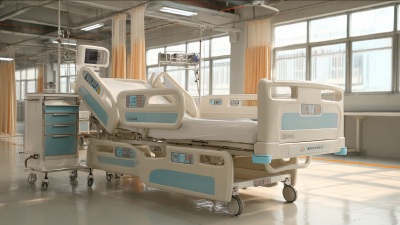
Unmatched Quality of Hospital Beds from Chinas Leading Factory Trusted Worldwide
-

Future Innovations in Best Hospital Equipment Bed for 2025 and Beyond
-

Innovative Hospital Beds Transforming Patient Comfort and Care in Modern Healthcare
-

Unlocking Comfort: Benefits of the Best Patient Bed for Enhanced Recovery
-

2025 Trends in Healthcare: How to Choose the Best Hospital Equipment Bed for Your Facility
-
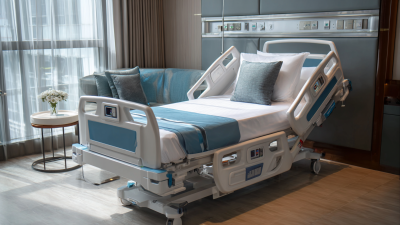
The Ultimate Guide to Hospital Equipment Beds Understanding Features Benefits and Industry Trends


